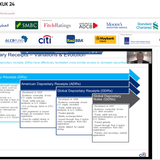A year after Argentina roared back to the international capital markets, investors can’t seem to get enough of the country’s debt. The latest evidence was the undeniable success of the US$2.75bn 100- year bond it issued last week, a hit with international investors as it was 3.5 times oversubscribed and received US$9.75bn in orders.
The bond carries a coupon of 7.125%, equating to an annual yield of 7.9%, according to a statement from the Argentine finance ministry. Citigroup and HSBC acted as managers and Nomura and Santander as co-managers on the transaction
Argentina is the first country without an investment grade to issue a so -called "century bond,” and the second in Latin America; the first regional mover into the century bond space was Mexico, which has a BBB+ rating, in 2010.
For Argentina and especially for centre-right president, Mauricio Macri, it was a huge success. But for investors, a 100-year old placement could represent a significant risk given the sovereign’s unremarkable credit background. Argentina has defaulted eight times in its 200-year history: 1951, 1956, 1982, 1989, 2001, and its “selective default” in 2014. The 2001 default on US$80bn of dollar-denominated bonds was the largest sovereign default at the time.
According to Finance Minister Luis Caputo, the deal's success highlighted how Argentina had regained market credibility and confidence, noting that the issue also was "prudent" as it was taking advantage of the low yield environment in balancing the country's debt profile.
Alexis De Mones, Head of Fixed Income at Ashmore Group and one of the funds buying into the placement, explained that this deal was all about yield, especially important at a time when low inflation has pushed the developed countries into negative rate territory.
“Investors love the high all-in yield: it helps shift overall portfolio yields higher, some investors, especially passively managed funds, may be compelled to own these bonds to match the index/market spread duration.”
The transaction was timed quite well for Argentina, especially in an election year where Macri needs to secure a majority in Parliament if he has any chance of successfully pushing through his economic reform agenda. The president needs support, but most importantly he needs to balance the fiscal deficit, which is currently around 4.2% of the GDP.
“An issuance like this allows the country to lock in long-term financing without the need to roll over for a long while; lock in low all-in yields, owing to the current window of low Treasury yields and low sovereign debt spreads; and most importantly, lock-in healthy appetite by market participants at present, which limits the risk of indigestion when issuing in large volumes,” De Mones said.
However, a deal, like this comes with its share of risk for the sovereign. There is no “natural buyer” of these kinds of instruments – and certainly no duration-matching hedging products for this kind of paper, which would ordinarily create a risk of low uptake in the primary market (this didn’t happen) and may affect how these instruments (and other Argentine credits) are traded in the secondary market; investors holding these bonds may be prevented from taking on riskier Argie paper due to exposure restrictions, which could pose a challenge for the country’s corporates.
De Mones also said investors should brace for slightly more volatility than is usually the case with Argentine credits.
“This bond may be used as a ‘trading instrument’ to trade Argentina risk, and thus be dismissed by long-term real money investors. One hundred years is a long time; who knows if a 7% coupon in US dollars will be good value for the sovereign or too expensive in a generation? If the interest cost becomes too high, the sovereign may have to buy these bonds back into the market at a high cash price in the future,” the investor noted.
Is Argentina Levering Up?
Argentina has taken on a significant amount of debt since Macri’s election in November 2015; it burst into the capital markets with US$16.5bn dollar denominated issuance. It tapped the markets again with US$7bn bond in January this year followed by an CHF400mn issuance in March.
Argentina's 23 provinces and the autonomous city Buenos Aires – all of which would see their debt taken over by the federal government in case of a default – issued US$7.9bn in new bonds in 2016.
Citing a stronger than expected peso, Caputo increased the overall 2017 foreign currency borrowing target to US$12.75bn from the US$10bn originally earmarked.
“The government no longer relies on fiscal debt financing by the from the Central Bank this is not unexpected; this should go hand-in-hand with lower inflation going forward, which can support the credit story,” De Mones said, cautioning that debt sustainability – while currently manageable – is seeing signs of stress.
“Argentina, having not issued internationally for many years, is starting from a position of low external debt; the stock of debt has been increasing, and supply is an issue. Debt sustainability metrics are still manageable, but they are indeed deteriorating, in our view.”
Given the success of the trade it seems clear Argentina is regaining the market's confidence, despite the country’s persistent economic slump. The real question – ever more important as we move towards mid-term elections in November – is whether all of this borrowing will in fact stimulate growth; so far, the signs have been scant, which could put lawmakers in a tough position as the country struggles to realise the fruits of their labour. The Indec national statistics agency recently announced Argentina’s economy grew by 0.3% in the first quarter of this year and overall growth of 1.1% in 2016, but consumption – or lack of it – still remains an issue as inflation continues to stay elevated.









